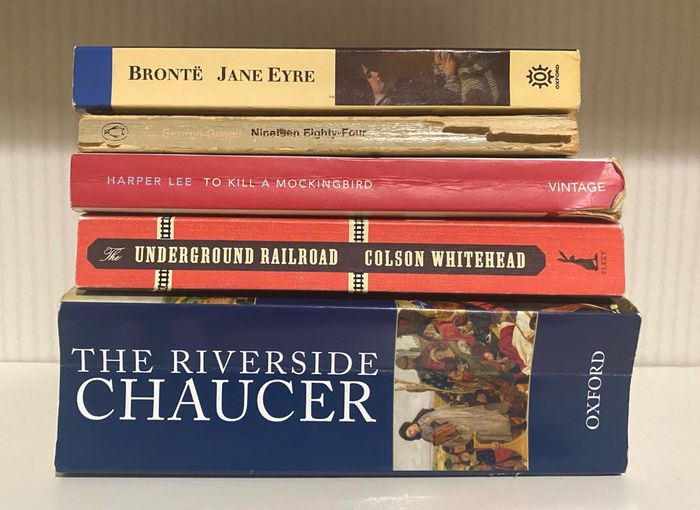Censoring Roald Dahl was never the answer
Dahl’s UK publisher had planned on revising several of the children’s author’s works to be more ‘sensitive’, in a now U-turned plan, but the effects of this may bring more harm than good

If you’ve heard the name Roald Dahl in the press recently, I’d be willing to forgive you for thinking it’s about the recent Netflix adaptation of ‘Mathilda’, or because of frantic parents trying to cobble together a costume for their child for World Book Day. Alas, this is not quite the case. Recently, Dahl’s UK publisher, Puffin, announced that they were planning on revising the childhood author’s works, in a plan that saw the modification of Dahl’s famously barbed prose to be more “sensitive”, which has since been scrapped following backlash from several prominent authors including Salman Rushdie and Philip Pullman.
To be fair to Puffin and to Penguin Random House (its parent company), many of the changes proposed were mild, swapping out “fat” for “enormous” or omissions of the word “ugly”, hardly like some reactionary parodies that are arguing that Willy Wonka is now a gender neutral vegan in an attempt to rile up the “culture war” crowd. Still, it’s a shame that the edits simply weren’t very good. Where’s Dahl’s prose is known for its cutting vivacity and grotesque wit, the edits stick out like a sore thumb with their wimpery nature, dulling the prose.
“It feels as if we are attempting to sweep his bigoted views under the rug, taking the easy way out of properly educating our children”
In some ways, this planned (and now U-turned) taming of Dahl’s writing is a shame. Not to run the risk of sounding like one of Dahl’s odious villains such as Miss Trunchbull, but children can be very violent-minded, and often drawn to unpleasant things. From my job as a primary school assistant, I can say with some certainty that if you gave a gaggle of nine-year-olds a computer and told them to come up with a play, they would be able to come up with something that would make Shakespeare’s Titus Andronicus look like daytime telly.
And let’s not forget the violent games we made up as kids; my make-believe Barbie games had enough blood, guts and melodrama in them to put Euphoria to shame. Kids have always had a morbid fascination with the messed-up and vile, and Dahl’s defanged prose simply doesn’t live up to that in some of these revised versions.
“Sometimes, it’s best to let the classics fade out”
Yet I’m not about to pick up my pitchfork and defend Dahl until my last breath. It’s not like revisions of this sort are a new “snowflakes gone mad” thing like the right-wing press would have us believe; in fact, Dahl rewrote parts of Charlie and the Chocolate Factory in the late 1960s to change the Oompa-Loompas into fantasy creatures as opposed to racist and colonial depictions of Africans. Dahl’s attitudes towards many groups in society were abhorrent and today would never get past the editing stage. But censoring out his work now just feels lazy and insulting.
No, not to Dahl, but rather to everyone else involved. It feels as if we are attempting to sweep his bigoted views under the rug, taking the easy way out of properly educating our children on why we don’t say these things anymore by instead insisting those things were never said in the first place. I think that is a much bigger shame than losing bits of Dahl’s writing, or by stopping future generations from reading his gory tales.
But let’s be honest, the issue of censorship and rewriting probably isn’t bothering any children. Sure, companies such as Netflix are still milking the Dahl cash cow, but I think we forget how fickle the tides of children’s literature actually are. My supervisor once asked if any of us had read The Secret Garden, only to be met with a majority of blank stares. In a twist of events, I asked my own pupils if any of them had read Alex Rider (a staple of 00s children’s fiction), to which my answer was a resounding “No”, which admittedly made me feel geriatric at the ripe old age of 20. Yet that’s the nature of writing for kids – things come, things go.
Instead of attempting to modernise Dahl in a desperate bid to stay relevant, why don’t we just let it go, and actually champion new and upcoming children’s writers with interesting and progressive voices rather than beating a dead literary horse written by a man who held problematic views? Sometimes, it’s best to let the classics fade out.
 News / Cambridge academics stand out in King’s 2026 Honours List2 January 2026
News / Cambridge academics stand out in King’s 2026 Honours List2 January 2026 Interviews / You don’t need to peak at Cambridge, says Robin Harding31 December 2025
Interviews / You don’t need to peak at Cambridge, says Robin Harding31 December 2025 Comment / What happened to men at Cambridge?31 December 2025
Comment / What happened to men at Cambridge?31 December 2025 News / Varsity’s biggest stories of 202531 December 2025
News / Varsity’s biggest stories of 202531 December 2025 News / Unions protest handling of redundancies at Epidemiology Unit30 December 2025
News / Unions protest handling of redundancies at Epidemiology Unit30 December 2025










